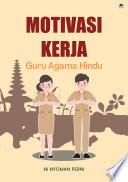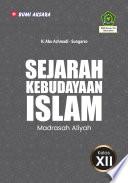
Kode Etik Pengusaha Muslim
Menjadi pengusaha ideal menurut standar syariat, tidak cukup hanya berbekal ilmu tentang halal haram. Anda juga perlu mengenal dan mempraktekan adab dalam berbisnis, berikut kode etik sebagai pengusaha muslim. Mewujudkan cita-cita menjadi pengusaha yang dirindukan surga, memang bukan perkara mudah. Karena itulah, Nabi shallallahu 'alaihi wa sallam memberikan janji istimewa bagi pengusaha muslim yang ideal. Dalam hadist dari Abu Said al-Khudri radhiyallahu 'anhu,Nabi shallalahu 'alaihi wa sallam bersabda, "Pengusaha yang jujur dan amanah, di akhir kiamat akan bersama para Nabi,para shiddiq, dan para syuhada." (HR. Turmudzi 1252, dan Daruquthini 2850) Meskipun berat dan susah, namun harus tetap diperjuangkan dan diupayakan. Semua berawal dari belajar, karena kita tidak diciptakan sempurna. Buku ini berisi 5 pembahasan pokok: #Antara Mukmin dan Dunia - mengenal interaksi ideal mukmin dengan dunia #Fitnah Harta - mengenal bahaya harta jika tidak dikendalikan dengan benar #Agar Tidak Tamak Dunia - membangun kesadaran agar tidak rakus dalam bekerja #Kode Etik Pengusaha Muslim - karakter pengusaha muslim yang ideal #Sengketa Dunia sengketa Akhirat - jangan bawa sengketa dunia ke akhirat Semoga bermanfaat...
- Judul : Kode Etik Pengusaha Muslim
- Pengarang : Ammi Nur Baits,
- Kategori : Religion
- Penerbit : Muamalah Publishing
- Bahasa : id
- Halaman : 170
- Google Book : https://play.google.com/store/books/details?id=CVf4DwAAQBAJ&source=gbs_api
-
Ketersediaan :
Guru dan Murid Abdullah bin AlMubarak Beliau sering melakukan perjalanan dan petualangan dalam mencari hadis, sehingga beliau memiliki guru yang sangat banyak. Di antara guru beliau adalah Sulaiman At-Taimi, `Ashim Al-Ahwal, ...








